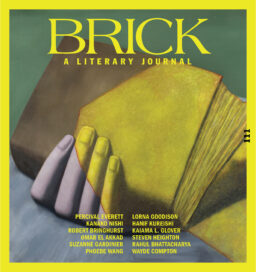Last night was a bad one. A bit of a standoff at one thirty in the morning with a nurse. I wanted more sleeping pills, and he insisted I had had enough already.
Of course, I have my own stash here in Rome, but I do not have access to it. And if I started mixing this stuff, I guess I could go up like kerosene. The nurse suggested I should lie still with my eyes closed. It sounded like good advice. I tried it for two or three hours but found my mind was working faster and faster.
Since my accident, I seem to be working harder, with more determination and ferocity. But I have no idea why this is.
I was born in the mid-1950s in a South London suburb called Bromley. We had a small but comfortable house with a large garden, where I would play cricket with my father, who came from a notable Bombay cricketing family. I was named after the great Pakistani opening batsman, Hanif Mohammad, whose powers of concentration were apparently incredible: he could bat for three days straight.
Most of the men in our neighbourhood had jobs rather than careers or professions. Others were teachers or doctors or solicitors. A man who lived directly across the road from us, in our cul-de-sac, worked as a printer on Fleet Street.
Next to him there was a mechanic, known as Motorbike Bill. Farther down the street was another man who sold bird food. Many of the men in the neighbourhood were commuters.
Around six thirty every morning I could hear my father downstairs washing himself. He would shave twice and put on his suit.
He would then sit down at his typewriter and work on a novel about his very privileged upbringing in Bombay. He had eleven siblings. We hated colonialism, but our family had many British friends. After writing, Dad would pack his briefcase and walk to the bus stop.
He would take the bus to Bromley South station, where he would then take the fast train to Victoria. From Victoria he would walk to the Pakistan High Commission in Lowndes Square in Knightsbridge. Since this was the sixties and there were a lot of Pakistanis coming to the U.K., and some of them working for a short time with my father at the embassy, I began to hear fascinating stories of the transformation in Britain. Stories of racism and hardship, but also stories of arranged marriages, Indian restaurants, corner shops, factory workers, families beginning to buy properties, and the new communities emerging around what was then known as London Airport.
At the weekends we would visit what were then known as slums around Herne Hill and Brixton. I began to hear stories that I knew I would like to use in fiction, stories that had yet to be told. Stories of real lives and social change. I knew that when I developed some craft as a writer and some sensibility as a human being, this would be my material. It was original. A New Britain was emerging, and nobody knew about it. It felt like an opportunity.
One of the most important parts of any writer’s process is the discovery of their subject matter, the part of the world they make their own. It could be daffodils for Wordsworth, Clapham for Graham Greene, or Paris for Jean Rhys. It doesn’t matter so much what it is, but the two have to work together. I’ve known some talented young writers who have great ability but have yet to succeed in discovering material that brings their work to life.
My father’s job was boring and exhausting, and in the end it kind of killed him. But he had no choice in the matter; he needed to support my mother, my sister, and me.
My father wanted me to be a professional cricketer. He wanted me to be the first Pakistani to play for England. He trained me for hours in the garden. He was a very good teacher. I loved to watch cricket, but I hated to play. In fact, I was frightened by the ball, and I was frightened of my father seeing that I was scared and a bit of a coward.
And I didn’t like to get hurt. My dad loved fearless small batsmen like Rohan Kanhai and Javed Miandad, men who played then, of course, against the world’s fastest bowlers, without any protection.
The hook was my father’s favourite shot, and he made me practise it for hours. To this day, I harbour images of my head exploding under the impact of a hundred-mile-an-hour hurtling cricket ball. I hate cricket now and can barely stand to watch it.
Hanif Kureishi grew up in Kent and studied philosophy at King’s College London. His novels include The Buddha of Suburbia, The Black Album, Intimacy, and The Last Word. His latest book, What Happened?, a collection of essays and stories, was published in 2019.
